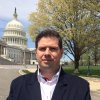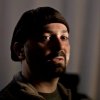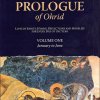He holds a BA in History and International Studies from Graceland University in Iowa.
Since October 2000, he has been a regular columnist for Antiwar.com focusing on the former Yugoslavia, Europe, and Russia. In addition to his two weblogs - in Serbian and English - Malić has written for several Serbian magazines, and is a contributing editor to the web magazine "Stanje Stvari." He also frequently appears on RT International and Russia's Kanal1 television, as a foreign policy commentator.
From January to November 2014, Malić was President and Executive Director of the R. Archibald Reiss Institute for Serbian Studies, dedicated to research and publication of accurate Serbian history and combating defamation of Serbs in the media.
He lives and works in the Washington, DC. area.





